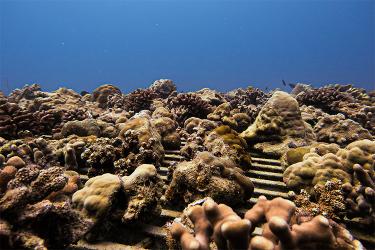Many things come to mind when thinking about Earth Day. After all, nature is all around us—the air we breathe, the water we drink, the marine life we admire, and the fish and habitats that sustain us. As the head of NOAA Fisheries, Earth Day also brings to mind how climate change impacts our ocean resources and how preparing for and addressing these changes is woven throughout our mission. NOAA Fisheries has been tracking and studying the impacts of climate change and variability on protected species, fisheries, aquaculture, habitats, and ecosystems for decades. Our goal has been—and remains—safeguarding the nation’s valuable marine resources and the many people, businesses, and communities that depend on them.
NOAA Fisheries and our stakeholders see the changes to our nation’s ecosystems in a profound way. Recognizing that climate change is a real and present threat to our mission, we’ve taken deliberate and significant steps to help build the science and management capacity for climate-ready decisions concerning marine and coastal ecosystems. This work requires engagement and dialogue across NOAA, with states and tribes, with our partners, and especially with underserved and underrepresented communities across the United States.
NOAA Fisheries Is Taking Action
Here are some examples of our climate work:
- We developed a Climate Science Strategy and are working on incorporating public comments into regional action plans to address critical gaps in our ability to provide and use climate-related information
- Our Distribution Mapping and Analysis Portal helps resource managers visualize how specific marine species locations have shifted, expanded, or altered over time, which may be in response to climate change
- We are working across NOAA on the Climate, Ecosystem, and Fisheries Initiative to provide an ocean modeling and decision support system needed for climate-ready decision-making for marine resources and resource-dependent communities
- With funding from the Bipartisan Infrastructure Law, we are able to make a transformational impact on restoring habitats in a way that takes climate science into account and will increase resilience
- NOAA researchers have developed global forecasts that can provide up to a year's advance notice of sudden and pronounced increases in ocean temperatures—marine heatwaves—that can dramatically affect ocean ecosystems
That last one is a game-changer: these forecasts could help fishing fleets, ocean managers, and coastal communities anticipate the effects of marine heatwaves, such as “the Blob” that hit the West Coast.
Climate change affects all our trust resources and mission responsibilities. The scientists and managers at NOAA Fisheries and our partners are constantly evaluating how to provide resource managers and resource-dependent sectors, tribes, states, and communities with the information and tools they need to be climate ready. Our efforts include prioritizing equity and environmental justice for underserved communities throughout our mandated and mission work.
In my travels around our great nation, I have been inspired by the work of others and their profound connection with and respect for the power and complexity of nature. We must act and work together to give natural systems and all of us who depend on them a chance. NOAA is positioned to achieve that goal—together with our partners and the public we serve.
Janet Coit
Assistant Administrator, NOAA Fisheries




